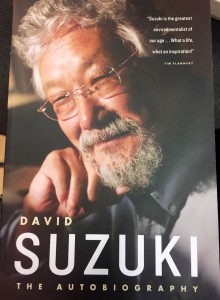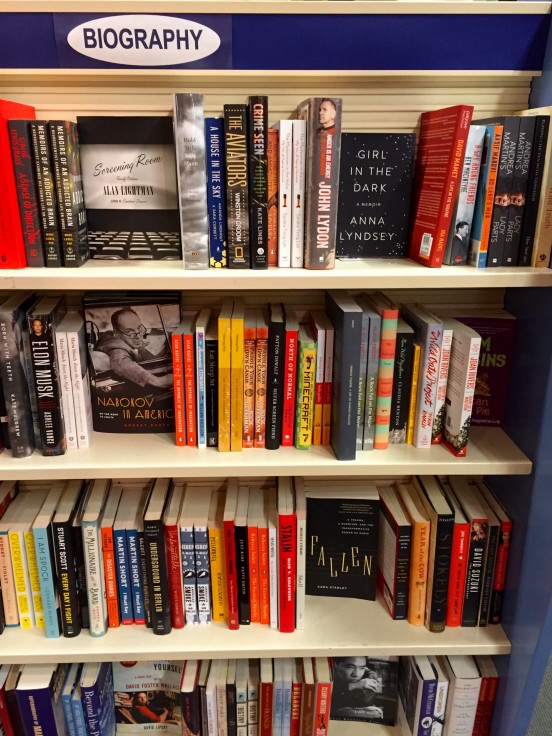
Throughout the book, two things are apparent: Suzuki cares deeply for his family and his passion for environment. With regards to the latter, I thought I [knew] a lot about what’s happening to the environment, but I learned much more from reading this book. I think I learned so much because of Suzuki’s first-hand observations that he eloquently details and his explanations of what’s going on are easy to understand. (My assertion here is actually incredible when you think about it because this book is actually an autobiography and not an environmental science book.)
Although the publishers has maximum profit in mind when structuring the appearance and marketing of this narrative, Suzuki seemed to have other motives. Beyond the telling of his life and career was a sharing of his passion for the natural world and his understanding of the necessary human actions to save it. Consumers who purposely buy this book generally have these concerns already, but an uninformed reader might begin to develop them. Suzuki prepares the life narrative with the following:
“Why would anyone else be interested in my life? I know people like to delve into the hidden parts of the lives of people who have acquired some notoriety, hoping to find juicy bits of gossip, signs of weakness or faults that bring the subjects down off pedestals, or simply to expand on what one knows about a public figure. It’s not my intention to satisfy that curiosity. Instead, as an “elder,” I hope my reflections on one life may stir the reader to consider those thoughts in relation to his or her own life.” (2)



